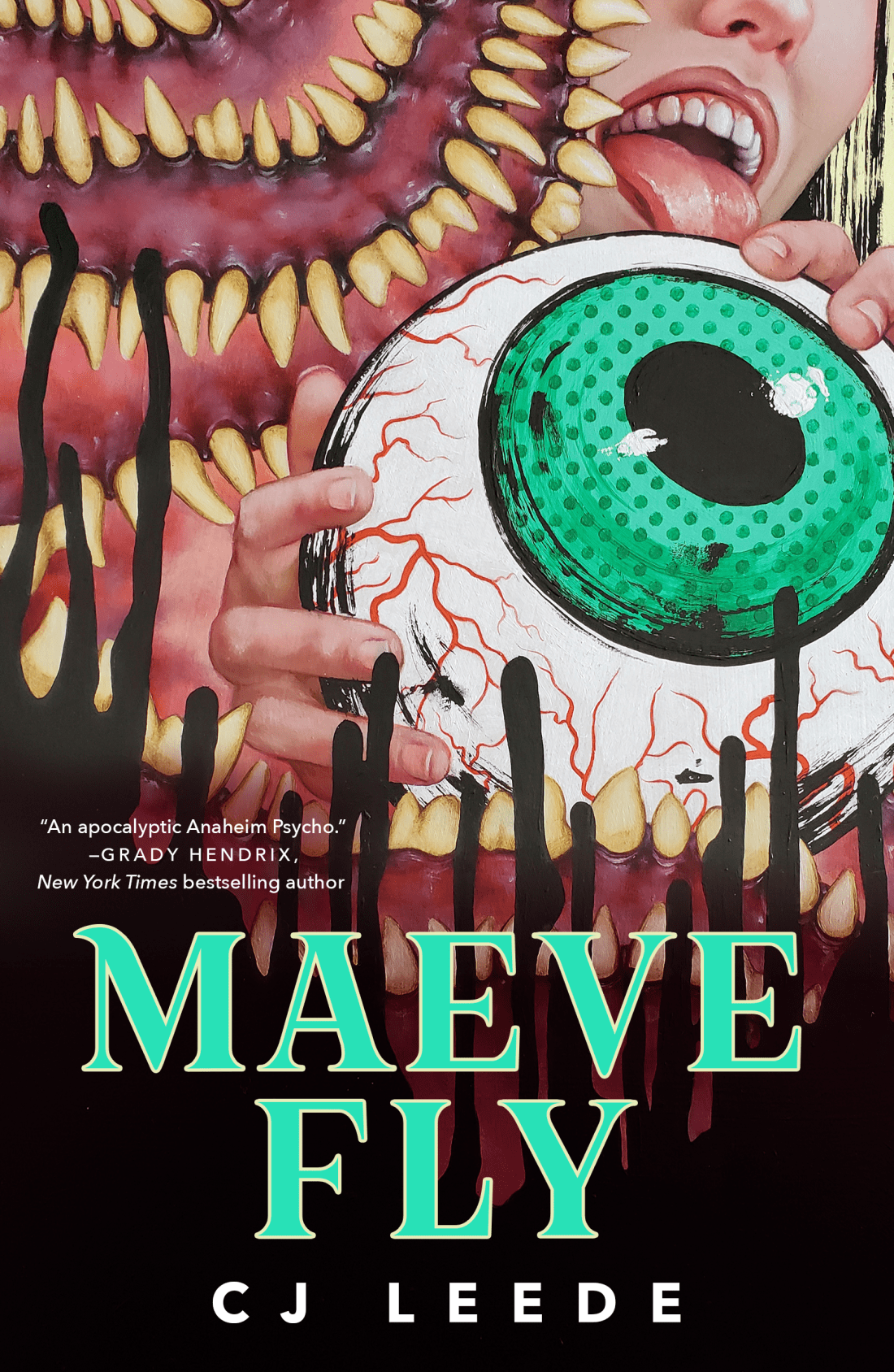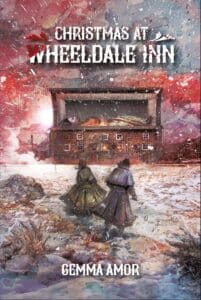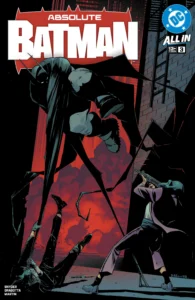
Synopsis
By day, Maeve Fly works at the happiest place in the world as every child’s favorite ice princess.
By the neon night glow of the Sunset Strip, Maeve haunts the dive bars with a drink in one hand and a book in the other, imitating her misanthropic literary heroes.
But when Gideon Green – her best friend’s brother – moves to town, he awakens something dangerous within her, and the world she knows suddenly shifts beneath her feet.
Untethered, Maeve ditches her discontented act and tries on a new persona. A bolder, bloodier one, inspired by the pages of American Psycho. Step aside Patrick Bateman, it’s Maeve’s turn with the knife.
Review
First and foremost, thank you to Tor Nightfire for sending a finished copy my way!
In the vein of serial killer/mass murderer stories that we have come to know and dare I say, love, Maeve Fly by CJ Leede offers an opposing view on the unhinged, psychopathic killer who is normally male. Maeve Fly spends her days as a princess at the happiest place on earth with her proclaimed best friend, Kate. Her home is that of her grandmother, Tallulah, who was once a famous Hollywood icon but now is terminally ill. Maeve’s favorite hobbies include drinking pina coladas at a tiki dive bar, listening to Halloween music, and reading literature that quite frankly had me clutching my pearls. Oh yeah, she also likes to ruin people’s lives over the internet, indulge in extreme forms of sex, and kill those who seem (to her) worthy of murder. This is all presented matter-of-factly from Maeve’s point of view, but the beginning of even deeper depravity begins with the arrival of someone new in town. Someone who sees Maeve for who she really is behind the mask her grandmother taught her so well to wear.
I am not typically a reader of extreme horror; I don’t have the stomach for graphic body horror or nonsensical violence. However, Maeve Fly did catch my attention given it poses the question, “What if Patrick Bateman was a woman?” This gender examination is a truly fascinating topic, especially with the emergence of America’s love for characters like Dexter Morgan, Joe Goldberg, and Walter White. The closest study of this female psychopath I’ve come across (at least in recent memory) is probably Amy Dunne from Gone Girl. Maeve Fly makes her look like child’s play.
“I have never understood, and still do not understand the notion that a woman must first endure a victimhood of some sort – abandonment, abuse, oppression of the patriarchy – to be monstrous. Men have always been permitted in fiction and in life to simply be what they are, no matter how dark or terrifying that might be. But with a woman, we expect an answer, a reason. But why would she do it? Why, why, why?”
This examination of gender roles in violence was truly captivating to read; it’s honestly why I muscled through the unrelenting gore and perversion. Beyond her grandmother who is just like her, Maeve wanders this world alone. This recognition of something “other” between these two women is a crucial pedestal that Maeve needs in order to survive. Since Tallulah has fallen gravely ill, her death imminent, Maeve begins to lose her view of the world, confronting the idea of being truly alone. There is something else at play that also sends Maeve into a tailspin: the arrival of dolls. Dolls that beckon to her and recognize her for who she is. Oh, and her best friend’s hot brother Gideon has just moved to town.
The appearance of these messed-up dolls would mean nothing to anyone other than Maeve. Upon seeing one for the first time, her day is nearly ruined. Their presence marks a calling card to her that isn’t specified in great detail. It’s just important to recognize how much these wretched little things affect Maeve. Where Gideon is concerned, she isn’t particularly interested until she thinks she may see something in him that she only knows to be true of herself. All these occurrences kick the plot into high gear towards the last quarter of the novel in which Maeve truly goes berserk. This “fall” from an already unsound mental state plunges into the depths of brutality. No one, and I mean no one, is safe.
Somehow through all the off-putting actions committed by Maeve, I can’t help but classify her ending as a tragic one. Her reaction to being seen in her entirety by someone outside of her family is that of a feral animal. The sheer decimation left in her wake is astounding and profoundly upsetting. However, I can’t help but commend Leede for writing such a layered, complex character. There are so many ideas and concepts tied to Maeve and her relationships, I feel as though I could spend days poring over their implications.
Maeve Fly does not shy away from gore, savagery, and downright vile behavior. CJ Leede gives us a front-row seat to Maeve’s fall into true nonsensical, homicidal rage. And honestly, if Patrick Bateman can, why can’t Maeve? This is incredibly perverse logic to employ in favor of feminism, but honestly, why do men get to and not women? Gender roles aside, Maeve’s story also functions as an analysis of loneliness and authenticity. While Maeve is an extremely elevated example of this concept, the ability to function, survive, and succeed in society is predicated on the ability to blend and mingle with others. Isn’t one of the core desires of us mortals to be seen by another sans mask? Again, I could ramble and reflect on these topics and the multitude of others presented in this deeply depraved novel. If you have the stomach for it, I recommend picking it up.









Leave a Reply